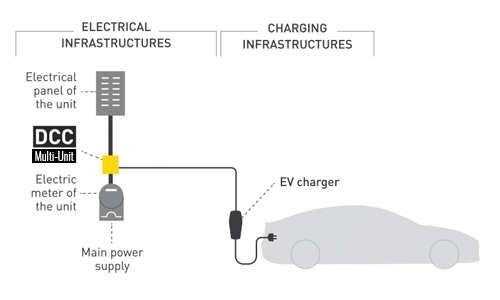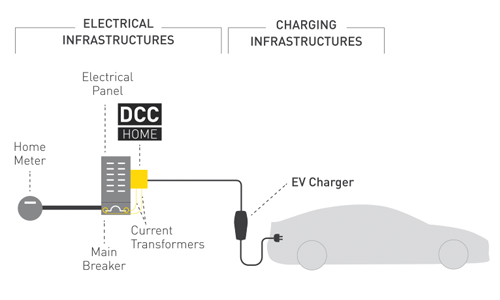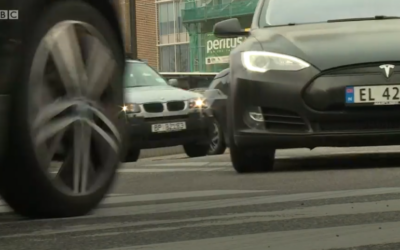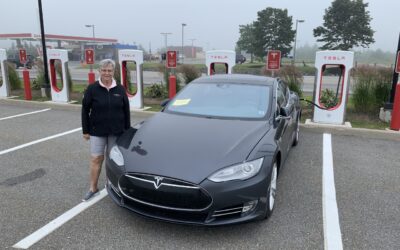Smart Charging Solutions
Charge electric vehicles faster, smarter, and cleaner with smart charging stations for residential and commercial locations. With 240-volt Level 2 charging, intelligent WiFi control, and sophisticated enterprise software to manage your charging, smart chargers provide unbeatable value, whether you’re equipping your home, business, or multi-purpose development.
Charging in the fast lane
Charge your EV smarter, faster, cleaner. Level 2 electric vehicle chargers are compatible with all EVs on the market. With models for residential and commerical use, they’re easy to install and even easier to use.
FUNDING AVAILABLE
The federal government has allocated funds to offset the costs of installing electric vehicle chargers in public spaces, workplaces, multi-unit residential buildings and more.
About DCC
Let your building’s existing electrical infrastructure handle EV charging with DCC, a splitter box specifically designed to make buildings EV charging ready at the lowest possible price.
Products
The easiest, fastest and smartest way to charge your electric vehicle.

Watti Home 48A
Electric Avenue's WiFi-enabled 48-amp Level 2 residential smart charging station with the essential features and power you need to charge your EV.
Details
- 48 Amp 208/240VAC 50/60Hz
- 7m Cable length
- WiFi Connection
- NEMA Type 4 Watertight Enclosure
- UL/cUL Listed
- 3-Year Warranty
- iOS and Android App controlled
- Works with voice assistants Hey Google and Amazon Alexa
*Inventory Available

Watti Pro 48A
Electric Avenue's easy-to-install WiFi-enabled Level 2 electric vehicle charger for public or multi-unit residential charging. Ability to monetize charging.
Details
- 48 Amp output power
- 5” Instructional Display
- 5m Cable length
- RFID, QR Code for payment collection
- Includes 2 RFID cards
- LAN, WIFI connections
- OCPP 1.6, upgradable to 2.0.1
- Hardwired (requires electrician)
- UL/cUL Listed
- Energy Star Certified
- 3-Year Warranty
- iOS and Android app control
*Inventory Available

Watti Direct 30kW
Electric Avenue's wall-mounted 30kW DC Fast Charger to provide customers or your fleet a quick way to a full charge. Also available as a portable charger for service bays, rental agencies and more.
Details
- 7" LCD Screen with User-Friendly Interface
- Networked, or Stand-Alone Operation
- RFID, QR Code for payment collection
- OCPP 1.6
- CCS1 and ChAedMo
- Dual Charger Guns
- 4.5m Cables
- Optional pedestal with cable management
- ETL Certified
- 2-Year Warranty
*Special Order

Watti Direct 60kW
Electric Avenue's 60kW Standalone DC Fast Charger. Get the most out of your EV infrastructure investment by monetizing charging in your commercial space.
Details
Electric Avenue 60kW Standalone DC Fast Charger
- 7" LCD Screen with User-Friendly Interface
- Networked, or Stand-Alone Operation
- RFID, QR Code for payment collection
- OCPP 1.6
- CCS1 and/or CHAdeMo
- Dual Charger Guns
- Choice of 4.5m Cables or 7m Cables
- Optional cable retractor attachment (top)
- ETL Certified
- 2-Year Warranty
*Special Order

Watti Direct 120kW
Electric Avenue's 120kW Standalone DC Fast Charger. Get the most out of your EV infrastructure investment by monetizing charging in your commercial space.
Details
Electric Avenue 120kW Standalone DC Fast Charger
- 7" LCD Screen with User-Friendly Interface
- Networked, or Stand-Alone Operation
- RFID, QR Code for payment collection
- OCPP 1.6
- CCS1 and/or CHAdeMo
- Dual Charger Guns
- Choice of 4.5m Cables or 7m Cables
- Optional cable retractor attachment (top)
- ETL Certified
- 2-Year Warranty
*Special Order

Watti Direct 180kW
Electric Avenue's 180kW Standalone DC Fast Charger. Get the most out of your EV infrastructure investment by monetizing charging in your commercial space.
Details
Electric Avenue 180kW Standalone DC Fast Charger
- 7" LCD Screen with User-Friendly Interface
- Networked, or Stand-Alone Operation
- RFID, QR Code for payment collection
- OCPP 1.6
- CCS1 and/or CHAdeMo
- Dual Charger Guns
- Choice of 4.5m Cables or 7m Cables
- Optional cable retractor attachment (top)
- ETL Certified
- 2-Year Warranty
*Special Order

DCC Products
Avoid costly upgrades to an already maxed-out electrical panel with DCC for home and multi-unit buildings.

DCC-9
Designed for townhouses and small multi-unit parking buildings, DCC-9 is an energy management system designed to allow the connection of an EV charger to the main feeder of a panel when the electric meter is accessible from the parking lot, all without affecting the load calculation.
Details
- Ideal when no more breaker slots are available in a panel
- Does not affect load calculation of a panel
- Automatic billing of electricity by the utility for multi-unit residential building installations.
- Can be ceiling or wall mounted.
- NEMA 3R enclosure available for outdoor installations.

DCC-10
Ideal for individual homes, DCC-10 is an energy management system specifically designed to allow the connection of an EV charger to a panel that is at full capacity and would otherwise need a service upgrade. It becomes part of the home’s electrical infrastructure to ensure charging won’t overload the home’s panel.
Details
- Does not affect load calculation of a panel
- AAutomatic billing of electricity by the utility.
- Can be ceiling or wall mounted.
- NEMA 3R enclosure available for outdoor installations.

DCC is compatible with ALL EV chargers

Latest Updates
Information and insights on EV chargers and available subsidies in Atlantic Canada.
What Canada Can Learn About Electric Vehicle Adoption from Norway
In Canada’s pursuit of a becoming a net zero nation by 2050, eliminating transportation emissions...
WITH NEW BRUNSWICK’S NEW EV REBATE, COULD EAST COAST LEAD THE EV CHARGE?
With New Brunswick being the last Atlantic province to offer a provincial rebate on electric...
THE TOP 4 TIPS FOR A SUCCESSFUL ZEVIP APPLICATION
With rebates and incentives, Canadians can get access to electric vehicles with over 400 km of...
How do I know my home/business/development’s electrical system can handle an EV charger?
It will be important to accurately size your building’s service for an anticipated level of EV charger readiness (percentage of parking spaces). If your building has already been built or is sized for a certain service already, current monitoring devices from DCC can be used to ensure that the charger never exceeds the maximum service load.
None of my employees/tenants have electric vehicles - why would I install EV chargers?
The federal government has set ambitious targets for EV adoption and electric vehicles are gaining more momentum as a viable choice of transportation for Canadians. With the government targeting to have EV sales make up 10% by 2025, 40% by 2030 and 100% by 2040 of light-duty fleet sales, the shift to EVs is imminent.
Installing EV chargers now (while there’s funding available) prepares your building for the future, simplifying future installation and operations, and helping reduce the cost of EV charging infrastructure.
How do I know how many chargers to install at my building?
The government has put lofty targets in place for EV adoption, 40% by 2030 and 100% by 2040. Many Canadian municipalities are already mandating builders to allot electrical capability for as much as 100% of parking space to be “EV Ready”.
Are there incentives or rebates for installing EV chargers?
Yes! There are a few programs underway in Atlantic Canada:
Efficiency Nova Scotia has two programs available:
- EV Ready Approach, a program pathway provides two rebates to support the installation of electric vehicle (EV) charging stations within multi-unit residential buildings (MURBS). Producing an EV Ready Plan, and if approved, being eligible for 50% coverage to install chargers according to your approved plan.
- Standalone EV Charger, a rebate for installing eligible charging stations. This pathway provides lower rebates compared to the EV Ready Approach, but it’s a simpler process for smaller projects or when installing your initial charging stations. Rebates of 50% of eligible costs, up to $2,500 per
station (max $10,000 per building) are available for existing buildings.
PEI's Electric Vehicle Charging Funding Program (PEI EVCF Program) will support up to 75% of eligible costs for business, academic and community organizations in PEI to install commercial EV chargers in public parking areas, workplaces, light-duty vehicle fleet parking, and designated multi-unit residential buildings (MURBs).
NL Hydro's Commercial EV Charger Rebate provides qualified applicants looking to install Level 2 or Level 3 electric vehicle chargers at workplaces, for light-duty electric fleet vehicles, in public places or on-street with a rebate for up to 50% of the costs to purchase and install eligible chargers, for a maximum of up to $5,000 per Level 2 charger, and up to $50,000 per Level 3 Direct Current Fast Charger (DCFC).
What will the government funding pay for?
Most funding programs allow successful applicants to include everything from site assessments to purchasing the charger and paying for labour to install it as part of the total project costs. Check the program specifications for full details of what is included in the total project costs.
If I install EV chargers at my multi-unit residential building, who pays for the electricity used to charge tenants’ cars?
Depending on the use case, smart charger software platforms have adaptive features to ensure that electricity cost can be recouped from consumers. Businesses and landlords will also be able to collect revenue from the use of charging equipment. Currently “per hour” billing is the standard in Atlantic Canada, but we can expect to see a blend of time and per kWh billing sometime in the future.
My electrician says my electrical service won’t support an EV charger, what do I do?
If your electrical service is already maxed out, there are workarounds to accommodate charging equipment without having to rewire or upgrade your entire electrical infrastructure. The DCC box from RVE is a current monitoring device that only allows your EV to charge when the required current is available from the main panel. So if the building’s service requirement comes within 80% of the maximum current rating of the bus bar, the DCC box will cut power to the EV charger to ensure that service size is not exceeded. Most users charge their vehicle at night however, when electrical demand is low. Thus the likelihood of maxing out the bus rating is low.
I want to equip 10/20/30 parking spots at my building with EV chargers. How much will this change my electrical service size?
For the best user experience, a dedicated 50A circuit (to support a 40A charger) is recommended for each charger. For, so example, adding 30 chargers could add as much as 1500 A to a building's service size.
Am I required to wire my new home/building for EV chargers?
There is no current requirement in Atlantic Canada to wire new buildings for EV readiness. However, municipalities around Canada are moving in this direction. For example, Vancouver now requires 80% of new building parking spaces to be EV ready. Similar mandates will be coming in the near future and it’s simpler and less expensive to prepare a building now than to retrofit it in five years.
What should I tell my electrician I need to support an EV charger in the future?
First and foremost, pulling a dedicated 50A circuit to each parking spot where an EV charger could go is absolutely necessary. This means wire, conduit, and the breaker in the panel to support a future EV charger. For home chargers it would also be a good idea to have a range outlet installed to accommodate the charger’s NEMA 14-50 plug.



